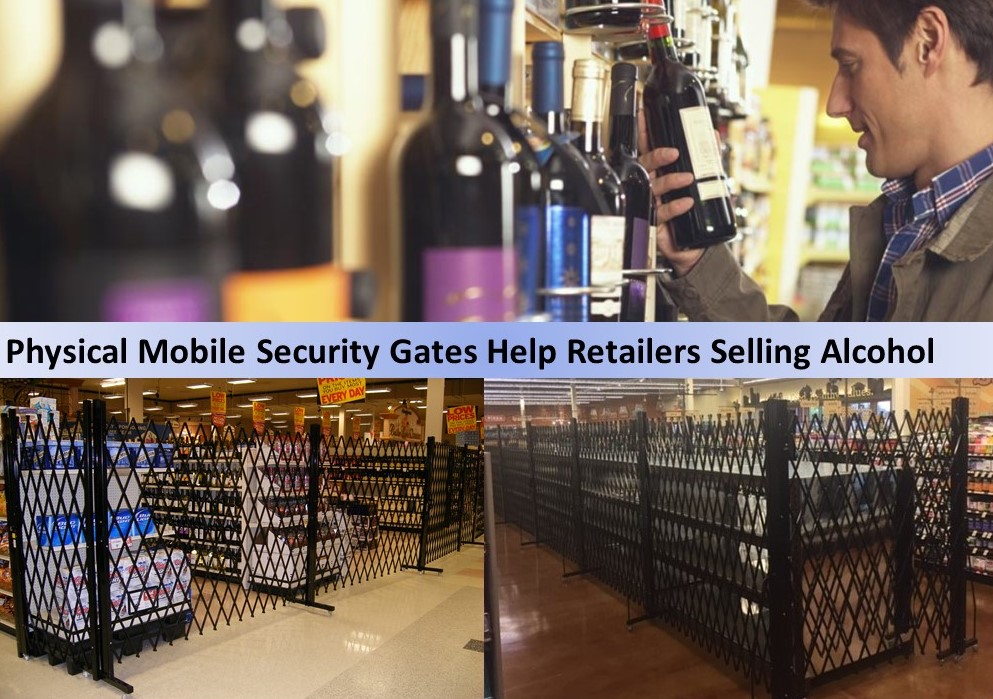The benefits of using physical security gates when selling alcohol (such as beer and wine) in convenience stores and grocery stores.

Using Physical Security Gates When Selling Alcohol in Grocery & Convenience Stores
Though grocery stores and convenience stores are allowed to sell alcohol in many states, there are usually restrictions in place. Depending on the state, stores may only be able to sell wine and beer (but not spirits) or they may only be able to sell on certain days or at certain times for day.
For example, several states have restrictions in place that do not allow alcohol sales on Sunday or before noon. It’s critical that grocery stores, convenience stores, and other retailers that wish to sell alcohol follow the laws of their state. Failing to do so can result in serious penalties ranging from fines to criminal charges to losing the ability to legally sell alcohol.
If your store wishes to sell alcohol, and if your state has restrictions in place, physical security gates can help you restrict access and comply with the law. Gates make selling alcohol safer and more convenient as well.
Mobile-Retractable Access Control and Security for Alcohol Sales
When a store sells alcohol, the store will likely want to place the product in an area where it is accessible and convenient for customers. However, if the state has restrictions in place, there must be a way to restrict access to these products when they are not able to be sold.
Physical security gates are an effective way of restricting access since they place a strong visual and physical barrier around the product. Anyone who sees gates around the wine or beer section immediately recognizes that these items are not for sale. Not only does it keep the product safe and allow you to comply with the law, but it also prevents misunderstandings where customers try to buy beer or wine when they’re not allowed to and store staff have to explain the situation.
Alternate methods of restricting access (such as using signage or positioning displays in front of aisles to deter people from entering) are simply not as effective as physical security gates.
Gates can be attached to the ends of aisles, allowing them to be easily opened and closed as needed. Mobile security gates can be connected to one another and used to surround areas of a store that sell wine and beer. They can quickly and easily be adjusted or moved as needed to restrict access.
Their ease of use is one of the key benefits of physical security gates. Not only does using gates not require any specific knowledge or training, but gates can even be keyed alike to make the security process even simpler. In addition, gates require very little maintenance, so they will work perfectly for years without worry.
When gates are not in use, they can easily be folded or rolled out of the way. This means they will not take up unnecessary space in your store and they will not add visual clutter or distractions either. They will simply be out of the way until they are needed again. This makes them a wise choice for grocery stores and convenience stores that sell beer, wine, and other alcohol.

